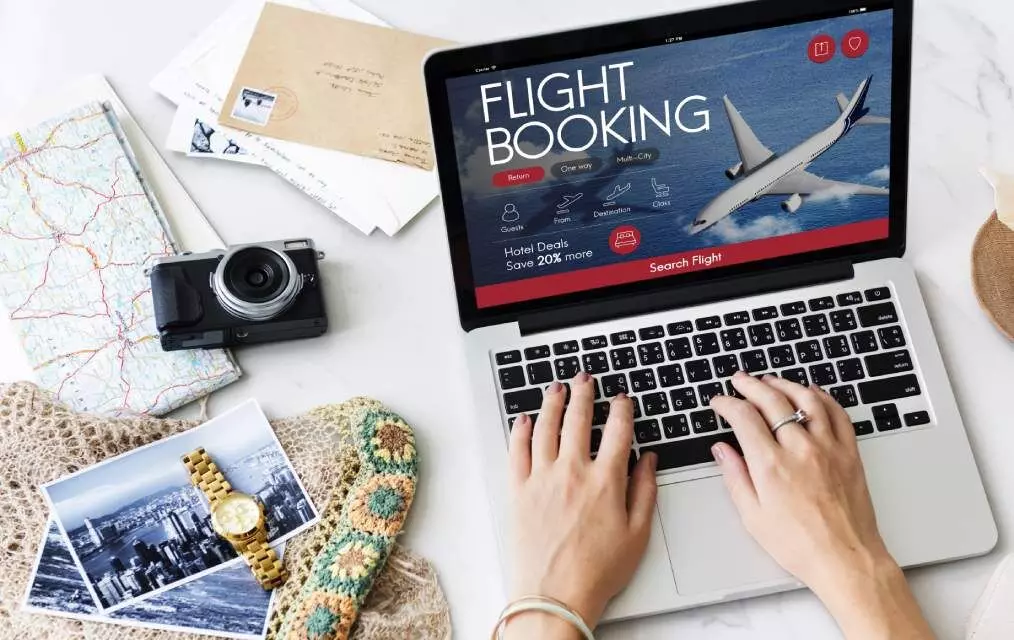Gen Z, millennials more likely to fall for travel scams: Survey
Indian travellers risk scams to lock cheaper deals
By Newsmeter Network
Representational Image.
Hyderabad: Gen Z and millennial travellers are most likely to fall for a scam while booking travel plans; this was revealed in consumer research done by YouGov.
The research also showed that victims from both groups lose an average of Rs 1,02,233 due to travel scams.
Indian travellers risk scams to lock cheaper deals
The research, commissioned by Airbnb, also uncovered that amid the rising cost of living, finding deals has become increasingly important with nearly half of the Indian travellers willing to be less vigilant when booking a holiday if it meant saving a significant amount of money, while over 40 per cent would take a risk to save money, even if they think a deal is too good to be true.
Hence, Airbnb – an online marketplace for short and long-term homestays worldwide – has announced that it has partnered with the International Association of Financial Crimes Investigators (IAFCI) to help consumers book safely online and avoid travel scams.
How to identify and avoid travel scams?
With people starting to make travel plans for the year-ender, it has become important to spot a travel scam, when the entire process – browsing, finding, and spending money – is done online.
As online scams become more sophisticated with the advent of technology like AI, fraudsters may try to take advantage of those searching for a travel deal by using fake websites, texts, emails or social media to trick people into believing they’re booking with a legitimate company.
Here are some tips to avoid losing money to travel scammers:
- Don’t click on links in unexpected emails or texts: Travellers should stay alert for suspicious websites, texts, emails and social media posts. If you’re unsure a message or post is from a legitimate company, do not engage with it or click on any links in it.
- Protect your passwords: Create strong unique passwords for your online accounts – long passwords (12 characters or more) are harder for scammers to guess. If you’re notified that someone tried to access one of your accounts and it wasn’t you, change your password right away. Enabling multi-factor authentication also offers an added layer of account protection.
- Be wary of cheap deals and pressure tactics: Searching outside of trusted sites can increase the risk of encountering a scam. Take time to review the details and compare them with other options, especially if you feel rushed into paying and keep in mind that if a deal sounds too good to be true, it probably is.
- Check the URL before you pay: Confirm you’re on the legitimate travel provider’s app or website before paying.
- Use legitimate methods for online payments: If you’re asked to pay for a trip by wire transfer, cryptocurrency or gift cards, those are signs that it could be a scam.
- Check the listing reviews: Check the reviews of travel sites and the options they provide. However, know that they can be faked.
- Report concerns right away: Contact your bank or financial institution immediately if you think you’ve fallen for a scam.
How does Airbnb fight travel scams?
To protect its consumers, Airbnb said that it has invested in measures to safeguard private information. These measures include dedicated teams and systems aimed at proactively deterring scams, on-platform messaging between users coupled with reminders across the site to stay on Airbnb to communicate, book and pay, and guest payment protections, like withholding payment for a stay until 24 hrs after check-in.
Airbnb said that it has teamed up with the International Association of Financial Crimes Investigators (IAFCI) to help people book travel safely online.
Amanpreet Bajaj, general manager for Airbnb India, Southeast Asia, Hong Kong and Taiwan, said: “We want to ensure Indian travellers know what to look for when booking travel and the red flags to avoid. When it comes to booking on Airbnb, we encourage our guests to only communicate, book and pay on the platform, where we have secure processes and support like Aircover in place to help protect against scams and ensure issues are rare.”